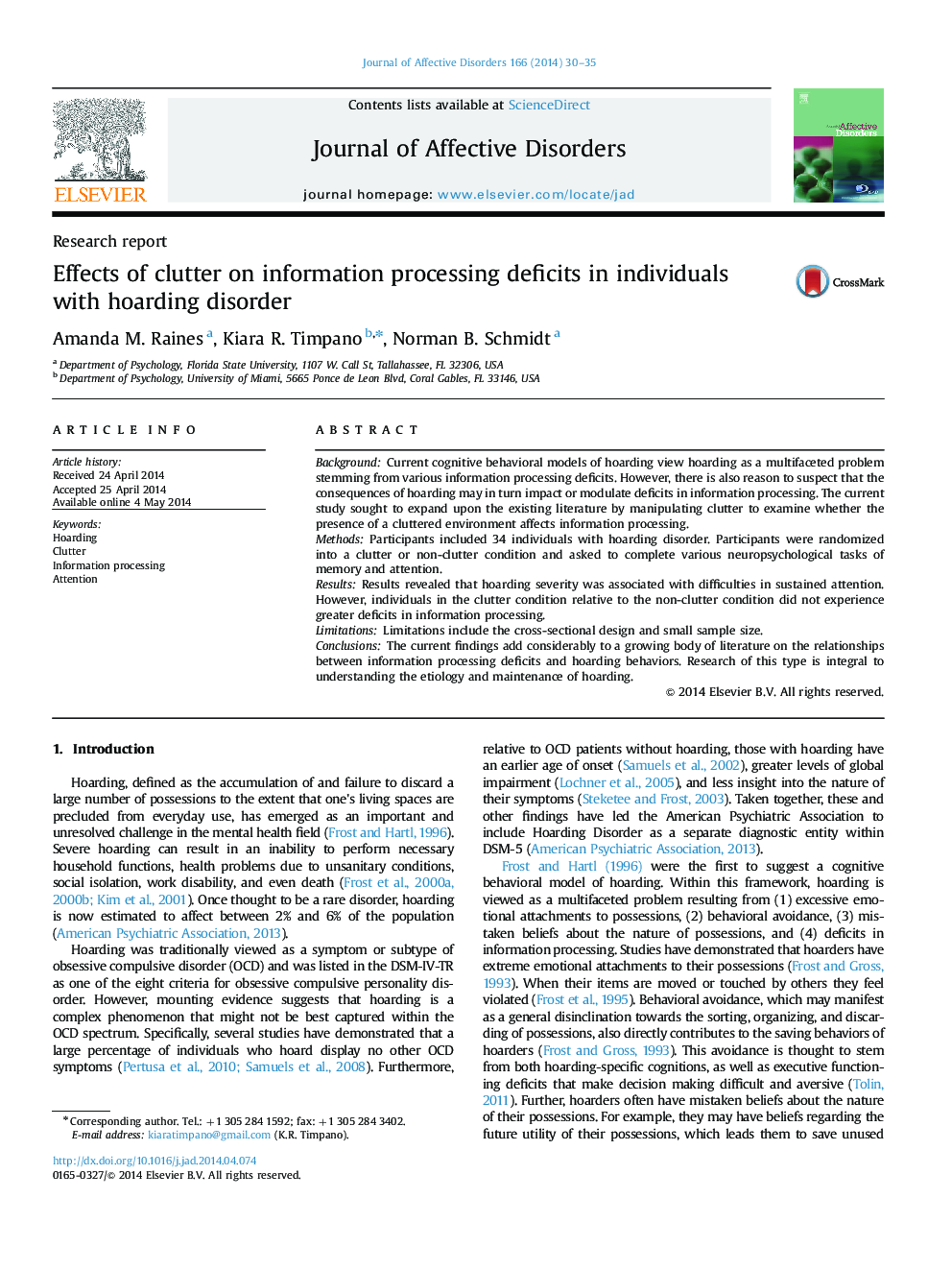| Article ID | Journal | Published Year | Pages | File Type |
|---|---|---|---|---|
| 6232481 | Journal of Affective Disorders | 2014 | 6 Pages |
BackgroundCurrent cognitive behavioral models of hoarding view hoarding as a multifaceted problem stemming from various information processing deficits. However, there is also reason to suspect that the consequences of hoarding may in turn impact or modulate deficits in information processing. The current study sought to expand upon the existing literature by manipulating clutter to examine whether the presence of a cluttered environment affects information processing.MethodsParticipants included 34 individuals with hoarding disorder. Participants were randomized into a clutter or non-clutter condition and asked to complete various neuropsychological tasks of memory and attention.ResultsResults revealed that hoarding severity was associated with difficulties in sustained attention. However, individuals in the clutter condition relative to the non-clutter condition did not experience greater deficits in information processing.LimitationsLimitations include the cross-sectional design and small sample size.ConclusionsThe current findings add considerably to a growing body of literature on the relationships between information processing deficits and hoarding behaviors. Research of this type is integral to understanding the etiology and maintenance of hoarding.
